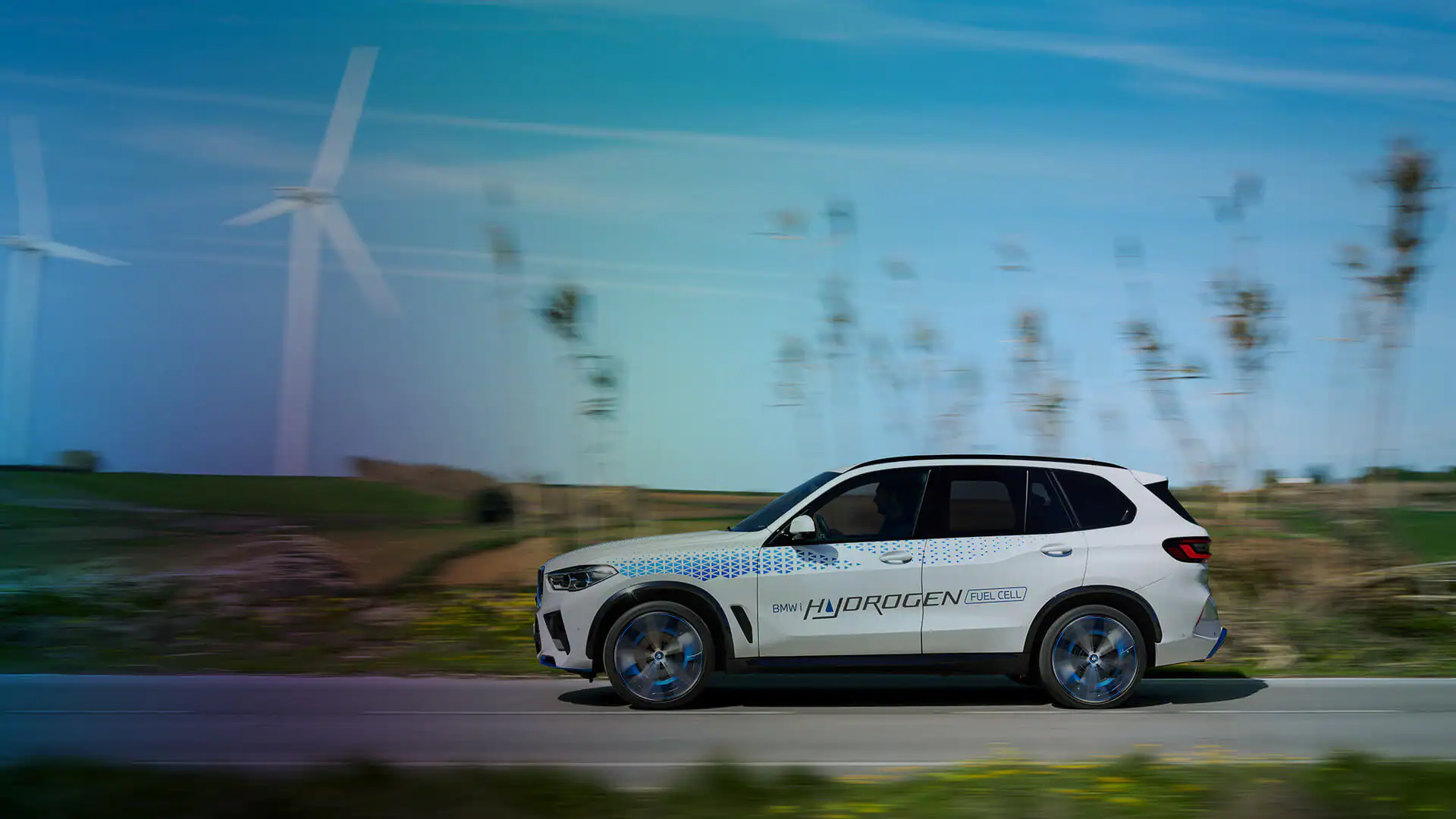BMW has launched the iX5 Hydrogen, marking a significant step in the automotive industry’s shift towards sustainable energy solutions. This move not only highlights BMW’s commitment to innovation but also underlines hydrogen’s potential as a key player in achieving emission-free mobility.
Key Highlights:
- Launch of the BMW iX5 Hydrogen pilot fleet after four years of development.
- The iX5 Hydrogen combines hydrogen fuel cell technology with BMW’s fifth-generation eDrive.
- Production of highly efficient fuel cell systems at BMW’s Munich-based center of excellence for hydrogen.
- Partnership with Toyota Motor Corporation for the development of fuel cell drive systems.
- The iX5 Hydrogen features a range of 504 km (313 miles) on the WLTP cycle and refueling times of just three to four minutes.
BMW has embarked on a journey to reshape the future of mobility with the introduction of the BMW iX5 Hydrogen. This innovative model, developed on the X5 platform, showcases BMW’s prowess in electric drive technologies and its systematic advancement of hydrogen fuel cell technology as a viable alternative for emission-free individual mobility. The development of this vehicle signals a pivotal moment in BMW’s history, emphasizing hydrogen’s role in the energy transition process and its potential to accelerate the transformation of the mobility sector.
The Technology Behind the BMW iX5 Hydrogen
The iX5 Hydrogen features a fuel cell system that represents a leap in BMW’s development expertise in electric drive technologies. This system generates a high continuous output of 125 kW/170 hp, emphasizing efficiency and performance. The vehicle’s powertrain, integrating a highly integrated drive unit and a lithium-ion battery, delivers a maximum output of 295 kW/401 hp, ensuring the driving pleasure BMW is known for.
A unique aspect of the iX5 Hydrogen is its rapid refueling capability, which, combined with a range of 504 km (313 miles), positions it as a practical alternative to conventional and purely battery-powered vehicles. This is made possible through the storage of hydrogen in two 700-bar tanks made from carbon-fibre-reinforced plastic (CFRP), highlighting BMW’s innovative approach to vehicle design and sustainability.
Production and Future Prospects
The BMW iX5 Hydrogen is produced at BMW’s Research and Innovation Centre (FIZ) in Munich, a facility at the forefront of integrating cutting-edge drive and energy storage technology. This production not only reflects BMW’s commitment to hydrogen technology but also its role in pioneering sustainable mobility solutions.
BMW’s collaboration with Toyota Motor Corporation on fuel cell drive systems since 2013 further underscores the global automotive industry’s collective move towards hydrogen as a key energy source for the future. This partnership leverages both companies’ strengths and shared vision for a sustainable mobility landscape.
BMW’s Hydrogen Vision: A Sustainable Mobility Ecosystem
BMW’s iX5 Hydrogen initiative is more than just the launch of a new vehicle; it’s a bold statement on the future of mobility. By prioritizing hydrogen fuel cell technology alongside battery-electric vehicles, BMW is diversifying the paths towards achieving global emission-free mobility. The iX5 Hydrogen’s development and production echo BMW’s broader strategy to reduce CO2 emissions across its value chain and align with global efforts for a sustainable future.
The BMW iX5 Hydrogen stands as a testament to the potential of hydrogen fuel cell technology in providing a complementary solution to battery-electric vehicles, offering a glimpse into a future where mobility is not only sustainable but also versatile and efficient.
In summary, the BMW iX5 Hydrogen represents a significant milestone in the automotive industry’s journey towards sustainability. It underscores the importance of hydrogen as an energy source that can coexist with and enhance battery-electric solutions, offering a multifaceted approach to achieving emission-free mobility. As we look to the future, the BMW iX5 Hydrogen is a clear indicator that the path to sustainable transportation is not singular but requires a combination of innovative technologies and collaborative efforts.



















